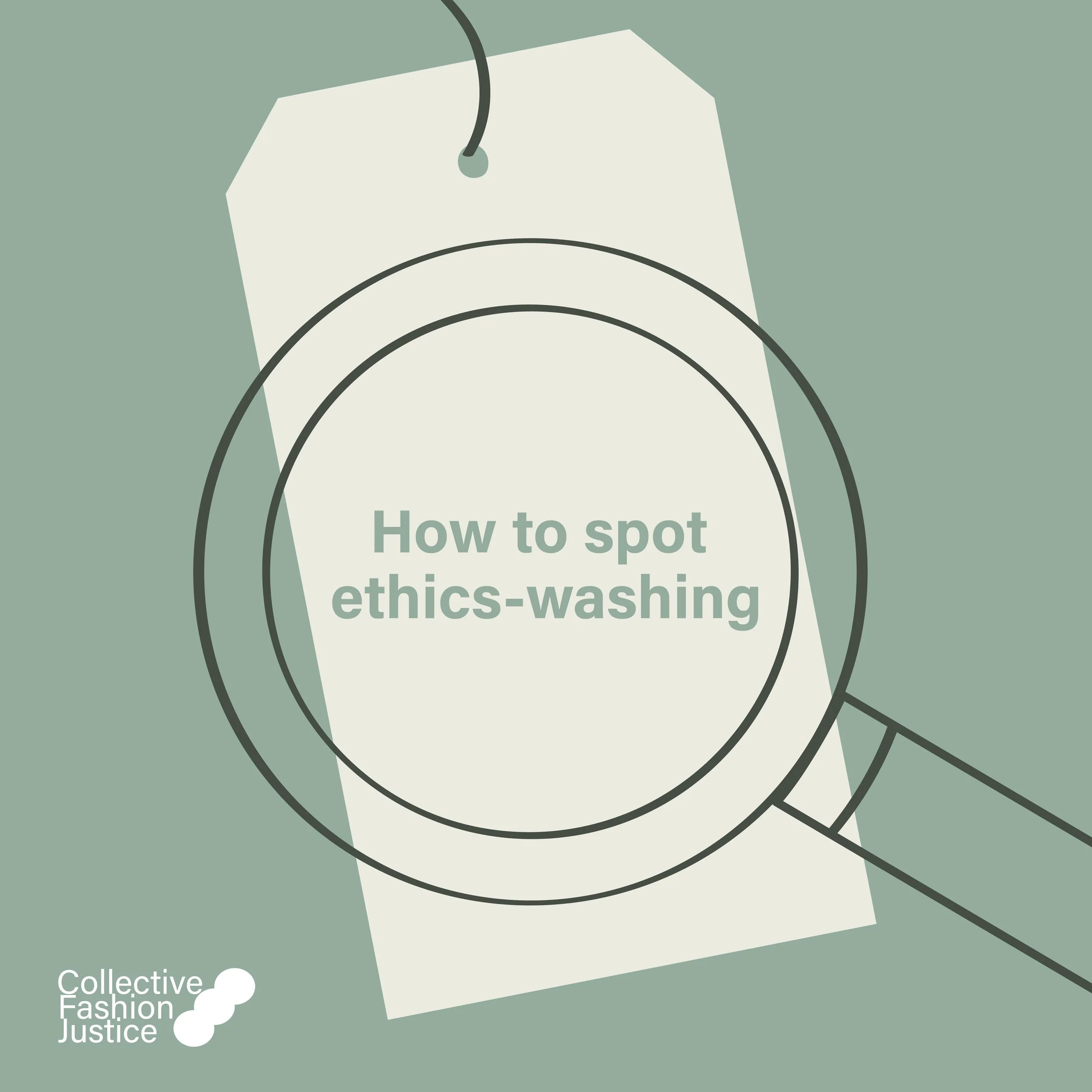How to spot ethics-washing
You’ve heard of green-washing, but what about ethics-washing? Just as fashion marketing often works to deceive us into believing garments and brands are most sustainable than they really are, misleading marketing can lead us to think fashion is more ethical and fairly made than it really is, too. So what are some examples of ethics-washing, and how can we spot it?
Ethics-washing exists to deceive people trying to make fair and kind choices
People trying to do the right thing and make compassionate choices are likely to be relieved and satisfied by labels and marketing which promise garments are made ‘ethically’, ‘fairly’ and ‘consciously’, ‘caring’ for garment workers while ‘protecting’ animals, using ‘cruelty-free’ or ‘responsible’ materials.
If we pay attention, we can notice just how many buzzwordy promises like those above are made by brands all the time. Unfortunately, none of these words have legal definitions, and so it’s up to brands to decide what they mean — or to make you think they mean far more than really do in practice.
It’s for this reason that we need to be able to not only spot words potentially being used to ethics-wash, but to look beyond them, and ask questions to see if these claims are based in a genuinely ethical reality.
So, here are some examples of phrases often used to ethics-wash fashion, what you need to know about them, and what questions to ask brands making these claims:
‘We pay our workers fair wages’
A ‘fair wage’ is not a legally defined concept. What if this brand thinks it’s fair to pay a poverty wage to the people making their clothes, or they just don’t care?
If a brand promises to pay ‘fair’ wages to the people making their clothes, ask them if they pay ‘living wages’. A living wage is a wage which covers a person’s basic needs like housing, food, medical care and so on. If the brand can’t ensure a ‘living wage’ is paid, it’s not a ‘fair wage’, even if they say it is.
Some estimates suggest as few as 2% of garment workers are paid a genuinely fair, living wage.
‘Our materials are sourced from farms with happy animals’
This is a very vague statement — and ethics-washing thrives in vagueness. While everyone hopes animals are happy, this statement ignores many critical parts of fashion’s animal supply chains which must be considered.
If brands selling wool, leather, down, cashmere or any other animal-derived materials make this claim, ask them:
Are the animals on this farm eventually killed? (The answer is yes, across practically the entire wool and cashmere industry, despite some brands even unwittingly misleading consumers by telling them otherwise. All down and leather requires slaughter or live-plucking.)
Are animals confined to a factory-farm or feedlot for any part of their lives?
Are the animals mutilated in any way? For example mulesed, tail docked, dehorned, debeaked, declawed? Is pain relief used? (While mulesing varies, these are all standard practices which don’t require pain relief by law.)
The answers to these questions are more specific, and generally come with unhappy outcomes.
‘We follow all legal requirements’
Whether referring to workplace health and safety, wages or the treatment of animals, this promise is much less meaningful than it may sound.
In many areas, local laws do not demand the payment of a living wage or stringent health and safety policies which truly value people working in fashion. Too, animal cruelty is essentially codified into law across the world, allowing for painful mutilation and unjust slaughter. All countries have woefully inadequate animal protection laws.
Unfortunately, brands must do much more than follow the law to maintain ethical practices. Ask them to supply you more information, documentation and certifications.
‘We have worked hard to ensure we produce ethically’
Effort is important, but outcomes are what matter most.
Ask brands what their efforts have resulted in, when it comes to the treatment of those in their supply chains. Specifics are critical!
‘We only use by-product materials’
Commonly used when discussing leather, this claim is misleading, and makes out that if something is a ‘by-product’ brands can use it without taking responsibility for how it was made.
In reality, leather is a profitable co-product of the meat and dairy industries, and brands are responsible for the treatment of cattle, farm workers and the environment in these supply chains.
‘We treat them like family’
Again, whether talking about animals or people making clothing, this statement sounds nice, but doesn’t mean anything.
Are the individuals supposedly seen ‘as family’ being paid poverty wages? Being sent to slaughter? Being made to work in dangerous conditions? Being mutilated?
What about if brands aren’t supplying information?
Ask them! Beware that brands which aren’t genuinely ethical often don’t supply information in an attempt to conceal their practices from you.
A brand committed to working towards total ethics should want to supply you with information, proud of the equitable supply chain they’ve created.

